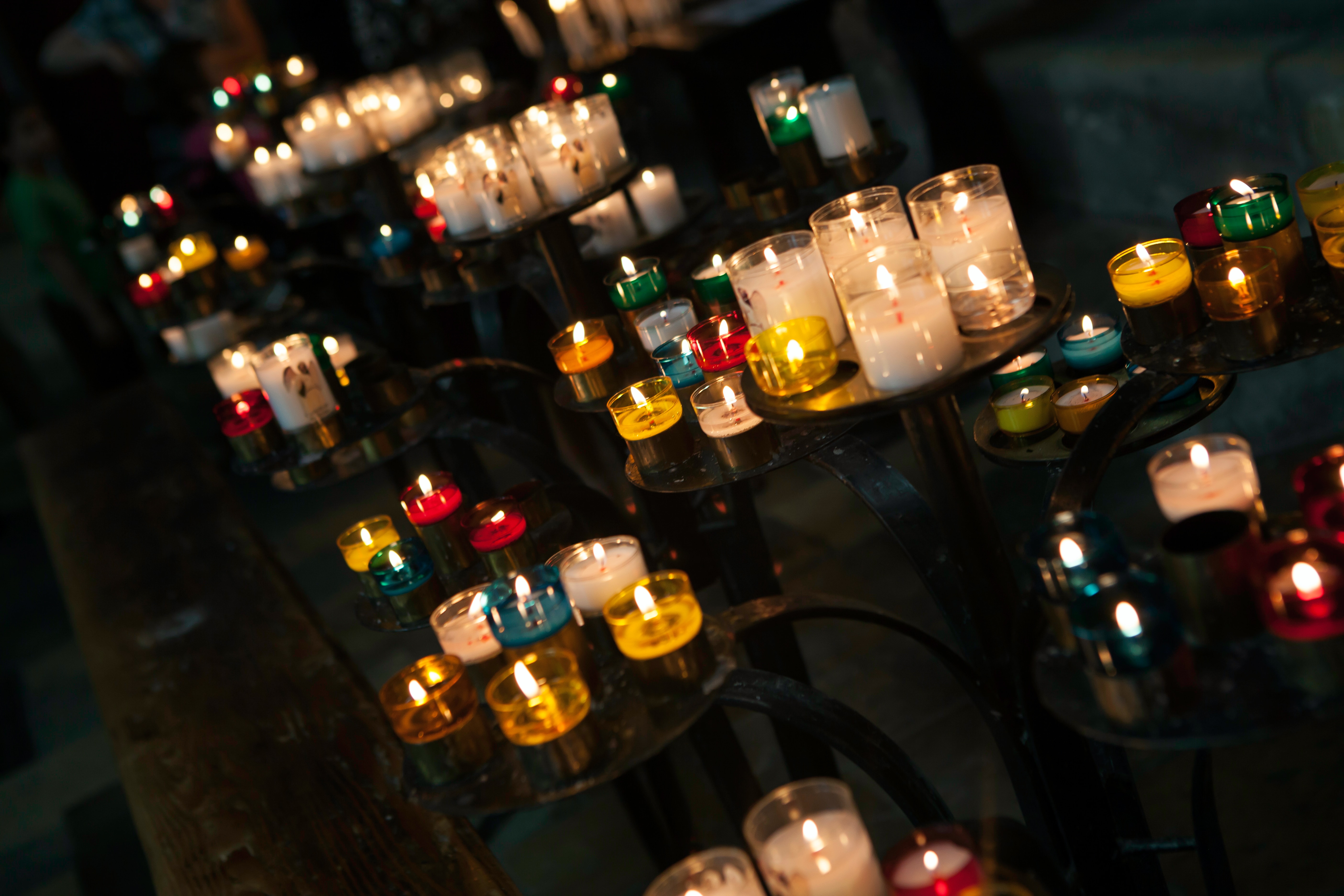
As anyone dealing with a loss knows, grief is never easy. However, grief during the holidays can be particularly intense.
Why is Grief During the Holidays So Difficult?
If you’re mourning the loss of a loved one this holiday season, you may feel overwhelmed for several reasons.
Gatherings
Holidays often center around parties that include family and friends. For my clients who have lost someone special, these occasions serve as powerful reminders of their absence and the changes they’re experiencing as a result.
Cultural Expectations
Societal expectations during the holiday season tend to be joyful, grateful, and celebratory. If you’re grieving, these expectations create a sense of pressure to suppress or hide your emotions, intensifying the internal struggle.
It can also create a sense of isolation, as you may feel you don’t fit in with the festive atmosphere.
Memories and Traditions
Many holiday traditions involve specific rituals, places, or activities. This triggers memories associated with the person who is no longer present, making the absence more palpable.
Social Comparisons
Seeing others enjoying holiday festivities with their loved ones can intensify feelings of loneliness and isolation for my clients and their inner circles who are grieving. I often recommend that clients take a break from social media if that’s adding to their sadness.
Anniversary Effect
If the loss occurred around the holiday season or the individual’s absence is more noticeable during this time, the anniversary effect contributes to heightened grief. If you’re dealing with unresolved grief, the anniversary reaction can involve several days or even weeks of anxiety, anger, nightmares, flashbacks, depression, or fear.
Changes in Routine
Holidays often bring changes in routines, which can be difficult if you’re grieving. The disruption of familiar patterns may accentuate feelings of loss and disorientation.
Financial Stress
The financial demands of the holiday season can add stress to an already challenging time. Grieving individuals may find it difficult to navigate the additional pressures associated with holiday expenses.
Rituals To Remember Loved Ones During the Holidays
Engaging in grief rituals during the holidays can be a meaningful way for you to honor loved ones, acknowledge emotions, and find support. Here are some holiday grief rituals that my clients and I find helpful.
Memory Sharing
I encourage family and friends to share memories, stories, and anecdotes about the person who has passed away. This can be done during a designated time, such as a holiday meal or gathering. Write letters, messages, or poems expressing your feelings and memories. These can be shared aloud or kept private.
Create a Memory Table or Shrine
We often set up a table or a small shrine with photos, mementos, and items that remind everyone of the person who is no longer present. This can serve as a focal point for remembrance.

Light a Memorial Candle
Light a Yahrzeit or special candle in memory of your loved one. This can be done at the holiday dinner table or during a quiet moment of reflection.
Include Their Favorites
Incorporate the deceased person’s favorite foods, drinks, or holiday traditions into your celebrations. This can be a way of keeping their spirit alive in the festivities.
Volunteer in Their Honor
My clients and I often engage in acts of kindness or volunteer work in memory of their loved ones. Giving back to the community can be a positive and meaningful way to honor their legacy.
Release Lanterns
Release biodegradable sky lanterns with written messages to symbolize letting go and sending love to the departed.
Attend a Memorial Service
Many of my clients attend a religious or spiritual service or organize a memorial ceremony. Something that acknowledges and honors their grief within the context of the holiday season.
Create a Remembrance Ornament
Craft or purchase an ornament in memory of your loved one. This ornament can be hung on your Christmas tree each year as a symbol of their enduring presence.
Plant a Memorial Tree or Garden
Planting a tree or creating a memorial garden in honor of the person who has passed away can provide a lasting and tangible tribute.
Host a Grief Support Gathering
Arrange a gathering specifically for those who are grieving during the holidays. It’s an opportunity to share experiences, provide mutual support, and foster a sense of understanding.
Practice Self-Care
I encourage my clients and/or their loved ones to prioritize self-care during the holiday season. This might include taking quiet moments for reflection, seeking therapy or counseling, meditating, journeying with plant medicine, or engaging in activities that bring comfort.
Choose rituals that resonate with your own beliefs, values, and preferences. Grief is a personal experience, and these rituals can provide a framework for expressing emotions and finding connections during a challenging time.
What Happens if We Don’t Process Our Grief?
If you don’t process or address grief, it can have various emotional, physical, and mental health consequences. Here are some potential effects of not dealing with grief, during the holidays or any time of year.
Intense Emotional Distress
Unprocessed grief can lead to prolonged emotional distress, including intense sadness, anger, guilt, or feelings of emptiness. These emotions may become chronic and interfere with daily functioning.
Unresolved grief can also contribute to or exacerbate mental health conditions such as depression, anxiety, or post-traumatic stress disorder. You may consciously or unconsciously suppress your grief, fearing the intensity of the emotions, but this can result in emotional numbness and a disconnection from your feelings.
Complicated Grief
Grief that is not processed may develop into complicated grief, a persistent and prolonged form of mourning that can make it challenging to adapt to life without the deceased. It often manifests as persistent yearning or preoccupation with the deceased.
Physical Health Consequences
Chronic stress associated with unprocessed grief can negatively impact physical health. You could experience insomnia, fatigue, and headaches. Prolonged grief has also been associated with an increased risk of health problems such as cardiovascular issues and a weakened immune system, potentially leading to more serious health conditions.
Strained Relationships
If you don’t address your emotions, you may struggle in many of your important relationships. The pain of unprocessed grief can affect communication, intimacy, and overall connection with others. Unprocessed grief may also make it difficult for you to form new relationships or connections, as the fear of loss can create emotional barriers.
Some people turn to substances such as alcohol or drugs as a way to numb the pain of unprocessed grief. This can lead to substance abuse issues and further complicate the grieving process.
Decreased Quality of Life
The weight of unresolved grief can impact your overall quality of life, affecting your ability to find joy and meaning in daily activities. It can also affect your ability to concentrate, make decisions, and perform effectively at work.
What Are the Stages of Grief?
The concept of the “stages of grief” was popularized by psychiatrist Elisabeth Kübler-Ross in her 1969 book On Death and Dying. The stages were originally identified in the context of individuals facing terminal illness, but over time, they have been more broadly applied to the grieving process.
These stages are not linear. You may not experience all stages or may experience them in a different order. Moreover, grief is a highly individual and complex process. So take this section with a grain of salt.
Some commonly recognized stages are:
Denial
In the initial stage, you may have difficulty accepting the reality of the loss. You engage in a form of denial as a way to cope with overwhelming emotions and protect yourself from the full impact of the loss.
Anger
As the reality of the loss sets in, you experience intense feelings of anger. This anger can be directed toward yourself, others, or even the situation or higher power perceived as responsible for the loss.
Bargaining
In this stage, you may attempt to make deals or bargains with a higher power to reverse or mitigate the loss. It often involves feelings of guilt and a desire to regain control.
Depression
During the depression stage, you confront the profound sadness and emptiness associated with the loss. Feelings of despair, loneliness, and a sense of hopelessness can be prevalent.
Acceptance
Acceptance does not imply complete emotional resolution or the absence of grief. Instead, it represents a stage where you begin to come to terms with the reality of the loss. You find a way to integrate the loss into your life and move forward.
Again, not everyone will experience each of these stages, and individuals may revisit certain stages at different times. Additionally, some models of grief propose different frameworks or emphasize the variability of the grieving process. The “Dual Process Model” developed by Margaret Stroebe and Henk Schut, for example, suggests that individuals may oscillate between confronting the reality of the loss and taking breaks from grief to engage in daily life.
You may also find that you’re dealing with additional “stages” like guilt and shame.
It’s crucial to approach grief with flexibility and recognize that there is no “right” way to grieve. Each person’s experience is unique, and support from friends, family, psychedelics, meditation, breathwork, or mental health professionals can be beneficial throughout the grieving process.

Healthy and Not-so-Healthy Grieving
Dealing with grief during the holidays is a highly individual process, and people may express their grief in various ways. While there is no one-size-fits-all approach to grieving, some behaviors and coping mechanisms are generally considered more adaptive and conducive to long-term well-being, while others may be less healthy.
Here are examples of both.
Seeking Support
Healthy: Talking to friends, family, death doulas, or a counselor can provide emotional support and help individuals navigate their grief.
Less Healthy: Withdrawing from social connections and avoiding support from others can hinder the healing process.
Expressing Emotions
Healthy: Allowing oneself to feel and express a range of emotions, including sadness, anger, and even moments of joy or laughter.
Less Healthy: Suppressing or avoiding emotions and not allowing oneself to feel and express grief can lead to unresolved issues.
Self-Care
Healthy: Taking care of one’s physical and mental well-being through activities like exercise, proper nutrition, and adequate sleep.
Less Healthy: Turning to alcohol, drugs, or other substances to numb the pain can contribute to long-term problems.
Making Meaning
Healthy: Establishing meaningful rituals or ceremonies to remember and honor the person who has passed away.
Less Healthy: Engaging in risky behaviors, such as reckless driving or excessive risk-taking, as a way to cope with emotions.
Joining Support Groups
Healthy: Connecting with others who have experienced similar losses by participating in grief support groups or communities.
Less Healthy: Ignoring or denying the reality of the loss and not addressing the grief can result in long-term emotional struggles.
Setting Boundaries
Healthy: Recognizing and communicating personal boundaries, especially during challenging times, to manage stress and avoid burnout.
Less Healthy: Keeping excessively busy to avoid confronting grief may postpone the healing process and lead to burnout.
In the End
It’s important to remember that grief is a complex and personal experience, and what matters most is recognizing when additional support is needed and seeking help when grieving becomes overwhelming or significantly impacts daily life. This is especially true if you’re navigating grief during the holidays.
Talking with an end-of-life doula can be a valuable resource for you while navigating the challenges of grief. Contact me at Anitya Doula Services for support during the holidays or any time throughout the year.




Recent Comments